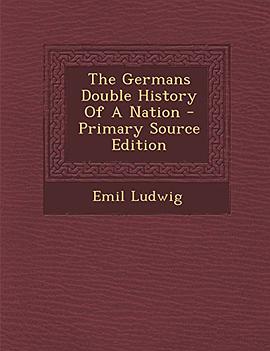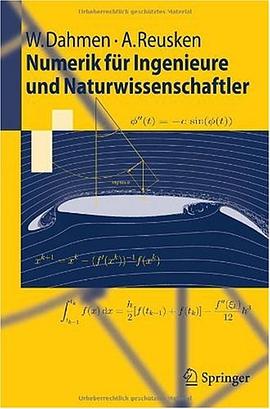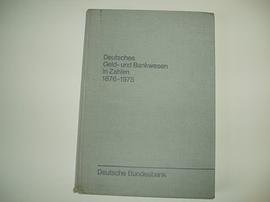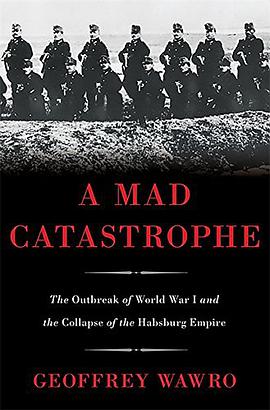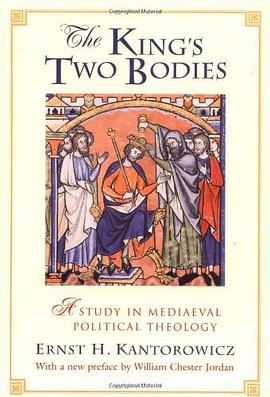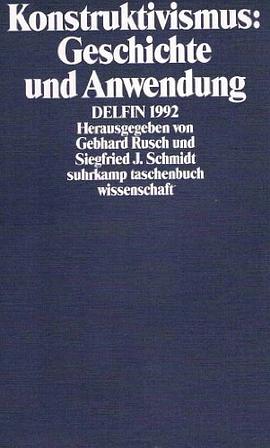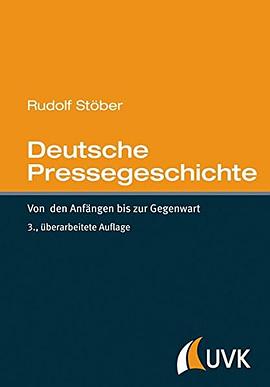德國
The Germans Double History Of A Nation 豆瓣
作者:
Emil Ludwig
Nabu Press
2014
- 3
Numerik für Ingenieure, Physiker und Informatiker 豆瓣
作者:
Günter Bärwolff
Springer Spektrum
2015
- 11
Numerik Fur Ingenieure Und Naturwissenschaftler 豆瓣
作者:
Dahmen, W.; Reusken, A.; Dahmen, Wolfgang
The Tyranny of Greece over Germany 豆瓣
作者:
E. M. Butler
Cambridge University Press
2012
- 3
Originally published in 1935, this book provides a study of the powerful influence exercised by Ancient Greek culture on German writers from the eighteenth century onwards. The text takes as its starting point Johann Joachim Winckelmann (1717-68), who was of fundamental importance to the introduction of Hellenistic ideas within the German intellectual tradition. This is followed by a chronological discussion of other key figures, such as Goethe, Schiller and Heine, revealing the complicated relationship between these ideas and the expression of an explicitly Germanic identity. A detailed index and bibliography are also included, together with illustrative figures. This book will be of value to anyone with an interest in German literature, Ancient Greece and literary criticism.
Praxis der Sinus-Milieus® 豆瓣
Springer VS
2017
- 11
Business Model Management 豆瓣
作者:
Bernd W. Wirtz
Springer Gabler
2017
Der Beteiligungsvertrag 豆瓣
作者:
Christopher Hahn
Springer Gabler
2015
- 4
Deutsches Geld- und Bankwesen in Zahlen 1876-1975 豆瓣
作者:
Deutsche Bundesbank
Knapp
1976
Europäische Rechtsgeschichte 豆瓣
作者:
Hans Hattenhauer
C.F. Müller
2004
- 9
The Vanquished 豆瓣
作者:
Robert Gerwarth
Penguin
2017
- 6
A Mad Catastrophe 豆瓣
作者:
Geoffrey Wawro
Basic Books
2014
- 4
The Austro-Hungarian army that marched east and south to confront the Russians and Serbs in the opening campaigns of World War I had a glorious past but a pitiful present. Speaking a mystifying array of languages and lugging outdated weapons, the Austrian troops were hopelessly unprepared for the industrialized warfare that would shortly consume Europe.
As prizewinning historian Geoffrey Wawro explains in A Mad Catastrophe, the doomed Austrian conscripts were an unfortunate microcosm of the Austro-Hungarian Empire itself—both equally ripe for destruction. After the assassination of the Austrian Archduke Franz Ferdinand in June 1914, Germany goaded the Empire into a war with Russia and Serbia. With the Germans massing their forces in the west to engage the French and the British, everything—the course of the war and the fate of empires and alliances from Constantinople to London—hinged on the Habsburgs’ ability to crush Serbia and keep the Russians at bay. However, Austria-Hungary had been rotting from within for years, hollowed out by repression, cynicism, and corruption at the highest levels. Commanded by a dying emperor, Franz Joseph I, and a querulous celebrity general, Conrad von Hötzendorf, the Austro-Hungarians managed to bungle everything: their ultimatum to the Serbs, their declarations of war, their mobilization, and the pivotal battles in Galicia and Serbia. By the end of 1914, the Habsburg army lay in ruins and the outcome of the war seemed all but decided.
Drawing on deep archival research, Wawro charts the decline of the Empire before the war and reconstructs the great battles in the east and the Balkans in thrilling and tragic detail. A Mad Catastrophe is a riveting account of a neglected face of World War I, revealing how a once-mighty empire collapsed in the trenches of Serbia and the Eastern Front, changing the course of European history.
As prizewinning historian Geoffrey Wawro explains in A Mad Catastrophe, the doomed Austrian conscripts were an unfortunate microcosm of the Austro-Hungarian Empire itself—both equally ripe for destruction. After the assassination of the Austrian Archduke Franz Ferdinand in June 1914, Germany goaded the Empire into a war with Russia and Serbia. With the Germans massing their forces in the west to engage the French and the British, everything—the course of the war and the fate of empires and alliances from Constantinople to London—hinged on the Habsburgs’ ability to crush Serbia and keep the Russians at bay. However, Austria-Hungary had been rotting from within for years, hollowed out by repression, cynicism, and corruption at the highest levels. Commanded by a dying emperor, Franz Joseph I, and a querulous celebrity general, Conrad von Hötzendorf, the Austro-Hungarians managed to bungle everything: their ultimatum to the Serbs, their declarations of war, their mobilization, and the pivotal battles in Galicia and Serbia. By the end of 1914, the Habsburg army lay in ruins and the outcome of the war seemed all but decided.
Drawing on deep archival research, Wawro charts the decline of the Empire before the war and reconstructs the great battles in the east and the Balkans in thrilling and tragic detail. A Mad Catastrophe is a riveting account of a neglected face of World War I, revealing how a once-mighty empire collapsed in the trenches of Serbia and the Eastern Front, changing the course of European history.
The King's Two Bodies 豆瓣
作者:
Ernst H. Kantorowicz
Princeton University Press
1997
In 1957 Ernst Kantorowicz published a book that would be the guide for generations of scholars through the arcane mysteries of medieval political theology. In The King's Two Bodies, Kantorowicz traces the historical problem posed by the "King's two bodies"--the body politic and the body natural--back to the Middle Ages and demonstrates, by placing the concept in its proper setting of medieval thought and political theory, how the early-modern Western monarchies gradually began to develop a "political theology."
The king's natural body has physical attributes, suffers, and dies, naturally, as do all humans; but the king's other body, the spiritual body, transcends the earthly and serves as a symbol of his office as majesty with the divine right to rule. The notion of the two bodies allowed for the continuity of monarchy even when the monarch died, as summed up in the formulation "The king is dead. Long live the king."
Bringing together liturgical works, images, and polemical material, The King's Two Bodies explores the long Christian past behind this "political theology." It provides a subtle history of how commonwealths developed symbolic means for establishing their sovereignty and, with such means, began to establish early forms of the nation-state.
Kantorowicz fled Nazi Germany in 1938, after refusing to sign a Nazi loyalty oath, and settled in the United States. While teaching at the University of California, Berkeley, he once again refused to sign an oath of allegiance, this one designed to identify Communist Party sympathizers. He resigned as a result of the controversy and moved to the Institute for Advanced Study in Princeton, where he remained for the rest of his life, and where he wrote The King's Two Bodies.
The king's natural body has physical attributes, suffers, and dies, naturally, as do all humans; but the king's other body, the spiritual body, transcends the earthly and serves as a symbol of his office as majesty with the divine right to rule. The notion of the two bodies allowed for the continuity of monarchy even when the monarch died, as summed up in the formulation "The king is dead. Long live the king."
Bringing together liturgical works, images, and polemical material, The King's Two Bodies explores the long Christian past behind this "political theology." It provides a subtle history of how commonwealths developed symbolic means for establishing their sovereignty and, with such means, began to establish early forms of the nation-state.
Kantorowicz fled Nazi Germany in 1938, after refusing to sign a Nazi loyalty oath, and settled in the United States. While teaching at the University of California, Berkeley, he once again refused to sign an oath of allegiance, this one designed to identify Communist Party sympathizers. He resigned as a result of the controversy and moved to the Institute for Advanced Study in Princeton, where he remained for the rest of his life, and where he wrote The King's Two Bodies.
Eliten-Marketing 豆瓣
作者:
Torsten Oltmanns
Campus Verlag Gmbh
2008
- 2
Der Deutschland-Clan 豆瓣
作者:
Jürgen Roth
Heyne Verlag
2007
- 5
Macht in Unternehmen 豆瓣
作者:
Hajnal, Ivo 编
Springer
2011
- 10
Macht und Herrschaft in Unternehmen 豆瓣
作者:
Ralf Werner
GRIN Verlag
2008
- 3
Die großen Management Consultants 豆瓣
作者:
Dietmar Fink
/
Bianka Knoblach
Vahlen Franz Gmbh
2003
- 6
Konstruktivismus 豆瓣
Suhrkamp
1992
Deutsche Pressegeschichte 豆瓣
作者:
Rudolf Stöber

